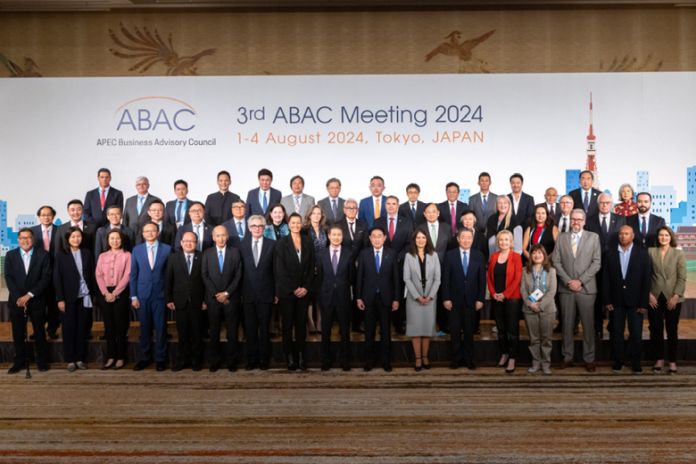APEC businesses call for greater action amid insufficient economic growth and increasing climate risk

By APEC Business Advisory Council
TOKYO, Japan – The APEC Business Advisory Council (ABAC) concluded its meeting in Tokyo, calling for decisive action to boost trade, digitalization and climate response.
“Tackling trade and investment barriers, promoting digitalization and accelerating the climate response is urgent. We can’t wait any longer” said Julia Torreblanca.
Torreblanca announced that ABAC has finalized its recommendations for APEC Leaders addressing these challenges, under its’ theme for this year, ‘People, Business, and Prosperity,’ to be formally presented during the APEC Economic Leaders’ Week taking place November in Lima, Peru. ABAC also prepared detailed recommendations to ministers of finance, health, energy, food security, and small and medium enterprises.
“Achieving our goals requires a seamless commercial environment built on strong foundations. APEC needs to make the Free Trade Area of the Asia-Pacific a reality, and ensure that the World Trade Organization (WTO) remains relevant and effective”, said Torreblanca.
“All APEC economies should join the new WTO E-commerce Agreement, which prevents the use of tariffs on digital trade and lays a critical foundation.”
Torreblanca also highlighted the need for a renewed APEC Investment Facilitation Agenda and enhanced supply chain cooperation.
“Another key focus of ABAC is on boosting interoperable digitalization in our region and enabling small businesses to access digital tools like interoperable paperless trade and artificial intelligence (AI). All this, within an AI framework that maximizes benefits while mitigating the risks, particularly for workers,” adding. “We have also identified concrete actions to enable micro, small and medium enterprises, especially those led by women and Indigenous entrepreneurs, as well as those in the informal economy, to succeed,” Torreblanca noted.
Addressing the climate crisis, Torreblanca called for urgent collective action to ensure sustainable and resilient growth.
“The world has now experienced over 12 consecutive months of temperatures exceeding 1.5 degrees above pre-industrial levels. Public-private sector collaboration will be essential to unlock and scale up financing for the energy transition, innovation and disaster resiliency.”
“We are also advocating for a new Greener Trade Framework to support emissions reduction throughout supply chains and the transition to a low-carbon economy.”
Source: caribbeannewsglobal.com

